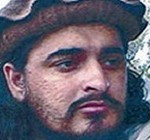The November 1 U.S. drone strike that killed Tehreek-e-Taliban Pakistan (TTP) Amir, Hakeemullah Mehsud, has created problems for Pakistan Prime Minister Nawaz Sharif and the Pakistani army, temporarily intensified U.S.-Pakistan troubles – and potentially re-opened the space for an American role in Kashmir.
For Nawaz Sharif, a long time opponent of drone strikes, the continuing strikes – with Pakistani military consent – is a major embarrassment. It also foils his initiative of holding peace talks with the TTP – talks the U.S. had opposed. Hakeemullah Mehsud’s killing has exacerbated anti-U.S. sentiments in Pakistan.
Predictably, Pakistan Tehreek-e-Insaaf (PTI) leader Imran Khan who supported talks with the Taliban, has exploited this anti-American wave. On November 4, the PTI-led Khyber Paktunkhwa assembly voted to cut off NATO supply routes if drone strikes do not cease by November 20. Khan may get support from the Pakistan Army for standing up to American pressure – but his pro-Taliban talks position is in contradiction with the Army’s anti-Taliban talks stance.
The TTP has repeatedly targeted the Pakistani Army and its facilities, and it has a major challenge now in dealing with the TTP’s retributive attacks. The new TTP chief, Mullah Fazlullah – nicknamed ‘Radio Mullah’ for his use of FM radio for religious sermons – is a known Islamic hardliner who has dismissed the peace talks as a ‘waste of time’ unlike predecessor Hakeemullah Mehsud who had demonstrated openness to talking with Islamabad. But Fazlullah also has to consolidate his position, and stand up to pressures from the 28 disparate groups that make up the TTP, manage TTP links with al-Qaeda, the Afghan Taliban and the Haqqani network.
Don’t expect a U.S.-Pakistan rift. The bilateral is still stable because the U.S. needs Pakistan to secure its drawdown from Afghanistan and Pakistan needs American aid funding. In fact, the events of the last week have unexpectedly re-created an opportunity to project a positive U.S. image in Pakistan – through its potential mediation on Kashmir. In a new book, former Pakistani Ambassador to the U.S., Husain Haqqani, reveals that in 2009, Washington secretly told Pakistan that in lieu of Islamabad ending support to terrorist groups like Lashkar-e-Taiba, al-Qaeda and the Taliban, the U.S. would nudge India on the Kashmir issue.
Allowing the U.S. to continue drone strikes would fulfill some part of this deal – and enable Nawaz Sharif to strengthen his domestic position, should the U.S. agrees to mediate in Kashmir. Sharif already holds some domestic trump cards: Army chief General Kayani retires on November 29 and feisty Chief Justice of Pakistan, Iftikhar Chaudhry will cede the bench on December 11. This gives him a chance to influence Pakistan’s polity by appointing his preferred choices in these two positions.
Nota bene: Sharif would do well to choose carefully; past army chief Musharraf replaced him in a coup.
Sameer Patil is Associate Fellow, National Security, Ethnic Conflict and Terrorism, at Gateway House.
This article was exclusively written for Gateway House: Indian Council on Global Relations. You can read more exclusive content here.
For interview requests with the author, or for permission to republish, please contact outreach@gatewayhouse.in.
© Copyright 2013 Gateway House: Indian Council on Global Relations. All rights reserved. Any unauthorized copying or reproduction is strictly prohibited.


